Rebel Galaxy: Outlaw was a no-show at E3 this year, but as it turns out, it was at the Seattle Retro Gaming Expo the following weekend. I was surprised to walk in to find Travis Baldree, one part of the two-man team at Double Damage (although it’s risen to five people for Outlaw, thus invalidating the studio’s name) and one of the founders of the late Runic Games (Torchlight, Hob), showing off a playable demo of his decidedly not-very-retro new game.
Outlaw is a space Western and a prequel to the original Rebel Galaxy set 30 years beforehand. It puts you in the role of a middle-aged Juno, your character’s aunt from the first game. She’s forced back into her old criminal habits when someone murders her husband, and her first abortive attempt at revenge wrecks her ship.
Now Juno’s deep in debt, flying a borrowed wreck, and getting back up to take another swing. You’re out on galactic civilization’s backwoods, far from the law, ready to work as a smuggler, bounty hunter, and mercenary pilot, to get the capital you need to get out of trouble and towards your revenge.
Outlaw is a big step up in terms of complexity and design from the first Rebel Galaxy, which was mostly procedurally-generated and made in a hurry on a shoestring budget. Juno’s a fighter pilot and flies ships to match, so you’ll spend much of your time here dogfighting among asteroids, rather than the first game’s focus on slow-paced naval-style combat.
Outlaw also features an animated intro by Titmouse (The Venture Brothers, Metalocalypse), and over 24 hours of licensed music played over seven in-game radio stations. It’s currently planned to launch August 13 on PCs as a 12-month timed exclusive in the Epic Games Store.
I spoke with Baldree on July 8 regarding the current status of Outlaw, its development process, and the plans for the game’s launch.
GameSkinny: How have things been going since the Retro Gaming Expo?
Travis Baldree: Getting wrapped up here. We’re in localization and QA. Just trying to tie down the last few things before we get it out the door. There are a few missiles in the air, and we don’t know where they’re going to land.
GS: So in the plot this time around, you play as a specific character.
TB: Yeah. So in the previous Rebel Galaxy, you were just a nameless nobody, but at some point in the game, you get your aunt out of jail. You actually play as that aunt this time, in Outlaw, 36 years prior.
So it was kind of a big change to have it actually be a character this time out, but it lets us do a lot of stuff we couldn’t do in the previous game, and didn’t have the time and resources to do.
GS: I either didn’t ask or didn’t retain that it was set more than 30 years beforehand.
TB: Yes. We call it a sort-of-prequel because it doesn’t really play the same. It’s mechanically different enough that the feel’s changed. There’s obviously a lot of shared Wing Commander: Privateer-isms and Elite Dangerous-isms and space trading, but it really does play so differently that it’s kind of weird to just call it a prequel.
GS: In the first game, you’re flying more of a naval frigate.
TB: Yeah. It was very much like Assassin’s Creed III: Black Flag in space.
GS: And in this one, you’re a fighter pilot. What spurred the change?
TB: Originally, I would’ve made a fighter game, and gone very Privateer with it, but when we were making the first game, I wanted to make sure it stood out. At the time, Star Citizen had been announced, Elite Dangerous was coming out, No Man’s Sky was coming out, and most of those things hadn’t quite landed. We just wanted to make sure that it was differentiated in some way, so it wasn’t like, “Oh, well, it’s like all those other games.”
In retrospect, it wouldn’t have been like any of them, but it felt like the right move at the time to just not do that. So we tried to do kind of the spirit of that with a different enough gameplay style that it would be unique. Now we get to go back and actually do the fighter stuff.
I actually originally prototyped the game as both, so you could switch back and forth between a capital ship vessel and the fighter at will. It kind of worked, but there were a lot of issues gameplay-wise with that. It got a little bit cumbersome, and it still meant that the game effectively had to be on kind of a space plane in order for the capital ship combat to still function. That feels exceedingly weird when you’re a fighter craft.
Then there’s all kinds of weird other gameplay issues. What if one ship blows up? Are you done? If you’re not done, how do you get it back?
Then it’s further compounded by other issues. If you want to play a character, who else is on the big ship? Do you have a crew? All of a sudden, the scale changes a lot, and it gets very difficult to manage and tell any kind of human-scale sort of story without so much cognitive dissonance that it all falls apart.
GS: You can actually get out of the ship as Juno and go play tavern games.
TB: Right. We don’t let you “drive around.” It’s scene to scene, but we try to have her be present in those scenes, so you have a sense of place without the tedium of having to walk down a bunch of hallways.
The aim with it was to make it as human as we possibly could. I think one of the things that a lot of these space games have that makes them off-putting to me — one of the reasons that I really still enjoy the original Privateer, clunky though it may be — is that they’re mostly austere and there’s not a lot of focus on character. I find that a little cold.
The aim, even with the previous game, where we also had a conversation system, was to give it as much personality and put as much humanity into it was we possibly could. That’s been a guiding light for every decision.
GS: If I remember correctly, the idea is that Juno’s husband got killed by her archenemy.
TB: She didn’t actually know who it was. She was tipped off; he was killed, someone pointed her in the direction of the person who supposedly did it, and she pulled herself out of retirement to go hunt him down. That’s basically where you start.
So she had previously had a more dubious lifestyle, settled down, and is now dragged back into it.
GS: She’s still pretty young in Outlaw if I remember the look of it correctly.
TB: She’s 43, I believe. Mid-forties.
GS: That’s a ballsy choice in video games in general.
TB: Having a middle-aged woman, who was married, is not a protagonist you see very often.
I don’t know, she felt like the character that we should do it with. And I love her voice actress, Lani Minella. I thought it would be awesome to have her basically carry the whole thing. Every other space combat game is the stubbly mid-30 lantern-jawed dude in a leather jacket. We just didn’t want to do that.
GS: I’m always impressed when a protagonist isn’t the young to middle-aged white guy as an audience identification character.
TB: Yeah. I just didn’t want to do that anymore. I don’t care.
What I wanted to do, and what I talked about when we first started, is that I wanted it to be like Han Solo for my daughters. Somebody who doesn’t have to be perfect and good, because so often, female protagonists feel like they have to be superhuman and perfect and good. I just wanted one who was a person who was good at some stuff, failed at others, wasn’t always perfect, wasn’t always nice, but was still relatable. Han Solo has that lovable roguish nature. He doesn’t always do the right thing. I wanted that kind of character who didn’t happen to be Harrison Ford, or a dude.
Juno shoots first. In the intro cinematic, she shoots first. [laughter]
GS: Who’s your writer?
TB: I’m afraid that’s me.
GS: Did you write the first one too?
TB: Afraid so. It was not great fiction. [laughter]
GS: You don’t have to apologize for that. Especially not in video games. I’ve seen a lot worse from people who should know better.
TB: More effort was put into the writing this time, and it was easier to write in a lot of ways because there was a protagonist. It’s annoying to write one-sided conversations that try and convey information, because they basically just become info dumps. You can’t have that back and forth of requesting and responding.
It’s also just easier if they’re characters because they have a voice. You’re a faceless nobody in the last game and the game was made in too little time, running down the clock on the bank account. I just tried to get it done. More effort was put into this one.
GS: It already feels like a big step forward from the first game, just in terms of the lived-in sorts of grungy environments.
TB: The last game was done seat-of-the-pants. Contract people to get some stuff done as fast as humanly possible. The characters didn’t even have legs, because we couldn’t afford the time to put them in or to have them modeled. All the characters that you see in the first game end at the belly button.
All the animation in the first game was me in front of a Kinect. I used the Kinect to do the head wiggles and hand gestures or whatever, then just cleaned it up and slapped it in there. We didn’t have an animator on the first game at all.
GS: I didn’t know you could do that with the Kinect.
TB: It’s not fantastic and it does require a little bit of cleanup, but it does work. There’s some software you can use where you stand there in a T-pose and it synchronizes you, and you can capture some rudimentary animation. You don’t get finger articulation and stuff like that, it’s effectively like mittens on the ends of your arms, and God help you if you want to spin in a circle, but it does work. [laughter]
GS: Is Outlaw going to be as procedurally generated as the first one?
TB: No, it’s all hand-built this time out. There’s a certain amount of procedural space-filling, but everybody shares the same seed.
The previous one was fully randomized. Everybody had different solar systems and planets and whatever. I regretted that after the fact. I thought it made everything feel purposeless, and the randomization didn’t contribute anything to replayability like it would in something like an action-RPG. It just made everything feel soupy. So we jettisoned that completely.
While we do use procedural stuff to fill in the intervening spaces, it’s kind of like how you would say in a game that, oh, there’s a forest here. Please procedurally place trees for me. You don’t have to hand-place every tree, I just want a forest over here. Because there’s so much space, that’s the only way to populate it that makes any sense.
But in Outlaw, this planet, say, will always be in this location, it will always have this bartender, it will always have this bar. These landmarks are where they are, and anyone playing the game can reference them to anyone else and they will always be in the same place.
GS: So, similar to how an open-world game will hit you with, say, a two-mile trip across the wilderness, and it’ll populate it with encounters and stuff for you to do along the way.
TB: Right. The random events can still happen, and traders and stuff still move around, but we didn’t hand-place every rock along the road.
GS: I like hearing you say that, because that was something I didn’t like about Rebel Galaxy. You could run into things like pirate ambushes that seemed way out of proportion to anything you were realistically equipped to handle.
TB: There are a lot of problems with procedural interception, and you can still run into stuff way outside of your league in this game, but the power curve is more compressed. The areas are more partitioned, because it’s not seven solar systems. It’s something like 39, so the difficulty is spread more widely outside of where you initially start.
There are a lot more tools that I built for keeping things out of the way when you need to do important story stuff. [chuckles] You can legitimately just say “Please leave me alone” on your radio in the early game, and mostly people will, because you’re a worthless target.
GS: I’d imagine it also helps that you’re in a fighter jet.
TB: And not a giant boat that’s getting hit from all sides? Yeah.
GS: Is there still as much of a focus on trade runs and things like that in Outlaw?
TB: Yeah, there’s still trading and mining. I think those things all read better because the economies were also hand-placed, so things are produced in meaningful locations that you can remember and notice.
There are also more tools built into the trading, so it says the last time you sold this, how much you sold it for, how much you bought it for, where you bought it, and locations where it’s commonly exported, so you can get more ideas of how to set up a trade run.
Also, there’s the fact that the game is just faster, and you can skip any intervening travel if you want to. It makes doing those sorts of things a little less tedious.
GS: I’m actually surprised by how much you’re iterating on Rebel Galaxy here, moreso than you usually see out of a sequel.
TB: There’s definitely a lot of taking ideas, throwing out what didn’t work, and improving and adding where we think it would’ve benefited. Some of it is just things we would have liked to have done before and simply didn’t have the time. We certainly applied every lesson we learned from the last game, everything from pacing and how equipment is handled and leveled, and how the world progresses.
Rebel Galaxy, I think, had a very saggy middle. A lot of that was that we were making this transition. Eric [Schaefer] and I have been making action-RPGs forever, and they’re very leveled games, right? There’s just this long power curve from one end to the other. There’s this constant bing-bing-bing of getting the next thing along the curve, with little spikes and valleys as you go.
Applying that to a space game, you have Level 1 lasers, Level 2 lasers… all of that honestly just feels tedious. The power curve just is not as important.
As a result of that, because of that power curve, we have this long period in the middle of Rebel Galaxy where you’re just trying to effectively “level up,” and it ends up being grindier than it should be.
The battles also have to scale to take that leveling into account, so they get denser and denser, and more and more time-consuming, to engage in over the course of the game. Instead of the pace accelerating, it slows.
One of the nice things about a fighter game is that the scale of your ship doesn’t change that much. You can keep those engagements, and the amount of time you have to spend in them, more constrained. As long as the moment-to-moment gameplay is enjoyable and interesting things are happening, it doesn’t matter. The leveling is not as important.
We certainly still have things where you spend more money and get better stuff, and we want you to have better stuff, but we want all that stuff to be more singular. You may get this gun, and it’s cool, but you don’t get it and then the Level 2 and 3 versions of it. It is what it is, and when you get it, it’s great. Maybe it has a different utility based on circumstance or whatever, but the mindset is very different.
GS: Your only real leveling currency is money.
TB: And your ship is effectively your character. But in this case, it’s not like I want to get the better ship. It’s that I want to get the ship that supports the way I want to play. It’s more like getting a character class.
GS: That makes sense.
TB: The weaponry certainly matters, but some of it is about maintenance. At the end of the day, though, it’s mostly just about having as many cool moments as we can pack into a battle. So with things like gear deterioration, if you get a gun damaged a lot over a period of time because you’re getting beat up a lot, eventually, you’ll have a moment in combat where you lose it.
It’s not because we really want you to be maintaining weapons and that it’s the gameplay that we want. The reason we do it is so you have that moment where you get into a hairy battle and you lose your left gun. You say, “Oh, my God,” and then you finish, and you succeed and limp back to base. That’s the story that you tell, that all my guns got blown off but one. I got this guy with the last torpedo in my launcher and I can’t turn left, but I managed to get home with cracked glass to get repaired. That’s the story that we want you to tell.
The gameplay decisions are mostly about trying to elicit those stories and not about introducing ways for you to grind, or spend your time, or consume your cash.
GS: Less downtime, more cool stuff.
TB: We want you to be doing cool things with downtime if you want it. Go play pool in your downtime. Don’t, you know, travel or grind for money. Go do something enjoyable that allows you to reengage your mind, or just enjoy listening to the song that you heard on the radio when you parked. I find myself doing that a lot.
GS: How long do you expect Outlaw will be?
TB: I think it’s probably going to be, depending on how you play, between 35 and 60 hours.
GS: That’s much longer than I was expecting.
TB: It’s longer than I was expecting, too. I figured it would probably be more like 20 to 25.
In general, though, it respects your time. You can save anywhere, you can exit at any time, you can pick up your missions; it’s never going to take long to get somewhere and go do the thing that you want to do. There’s not a lot of constant re-traversal.
GS: That was something that got me about the first game. The first 20 to 30 minutes of it was just kind of bouncing back and forth between the first city and outlying areas.
TB: Yup. Traveling.
So we jettisoned that pretty much completely. It takes seconds to get to whatever you’re doing. If you go out and you die, you’ve lost almost no time.
We did end up putting the option back in to stay in-world as you travel, because so many people asked for it. It’s a secondary option, so you kinda stay in-world, fly around, listen to music, and do your thing if that’s really what you want to do. Some people really want to be space truckers, so…
GS: So you’re getting ready to launch on PC first, and like the first one, it’ll be coming to console later, if at all.
TB: The builds actually already work for the consoles. We have PS4 and Switch builds, but it’s just a matter of me not being able to manage more than one launch at once. I’m the only engineer here, which means I’m the only deployment engineer, which means I deal with the certification, and the bugs, and post-release support, and everything.
And I’m too old. I can’t do three versions at once. So as soon as the PC version has shipped, and probably after the two weeks of running around on fire afterwards have elapsed, then I’ll start trying to shift my focus back over to wrapping up the PS4 and Switch versions and getting them through their certification.
I’ve been through the process with Sony for the PS4, but I’ve never been through it with Nintendo. It’s about what boxes do I have to check, and who do I have to talk to, and how do I get it scheduled for certification, and all those little boring things that have to happen.
GS: Why not the Xbox this time around?
TB: Mostly it was just a matter of not wanting to do more than two console platforms again because it’s just me, and we really wanted to do a handheld version. Based on the experience we had with the last two console versions, the PS4 performed better and was honestly easier to develop for. It was just a matter of what is least painful for me, and also what gets us a Switch build. It’s conceivable that we may do an Xbox One build, but it would be if I could pay someone else to do it for me.
Rebel Galaxy: Outlaw is currently planned to launch August 13 on PC as a 12-month timed exclusive in the Epic Games Store.

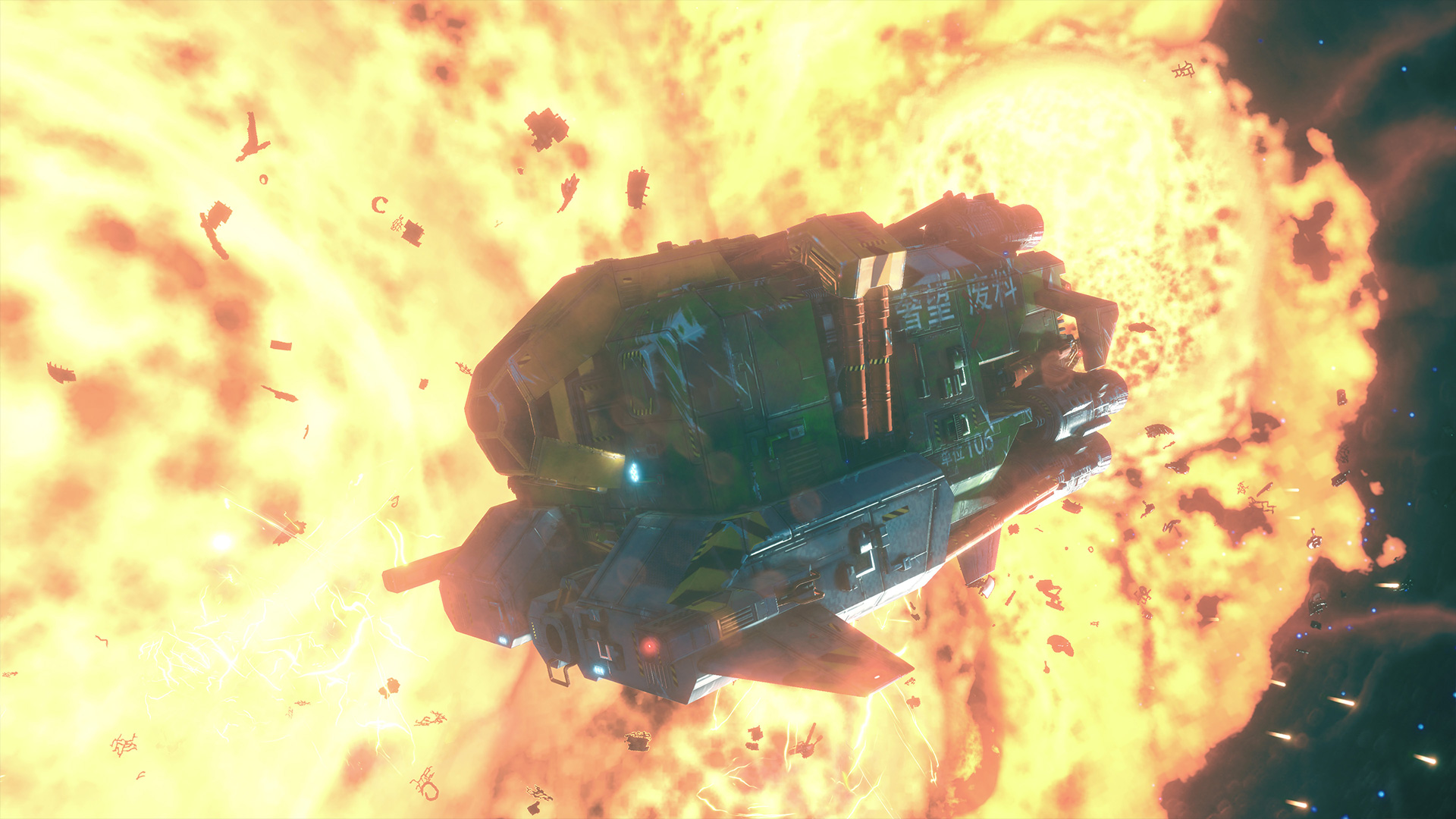
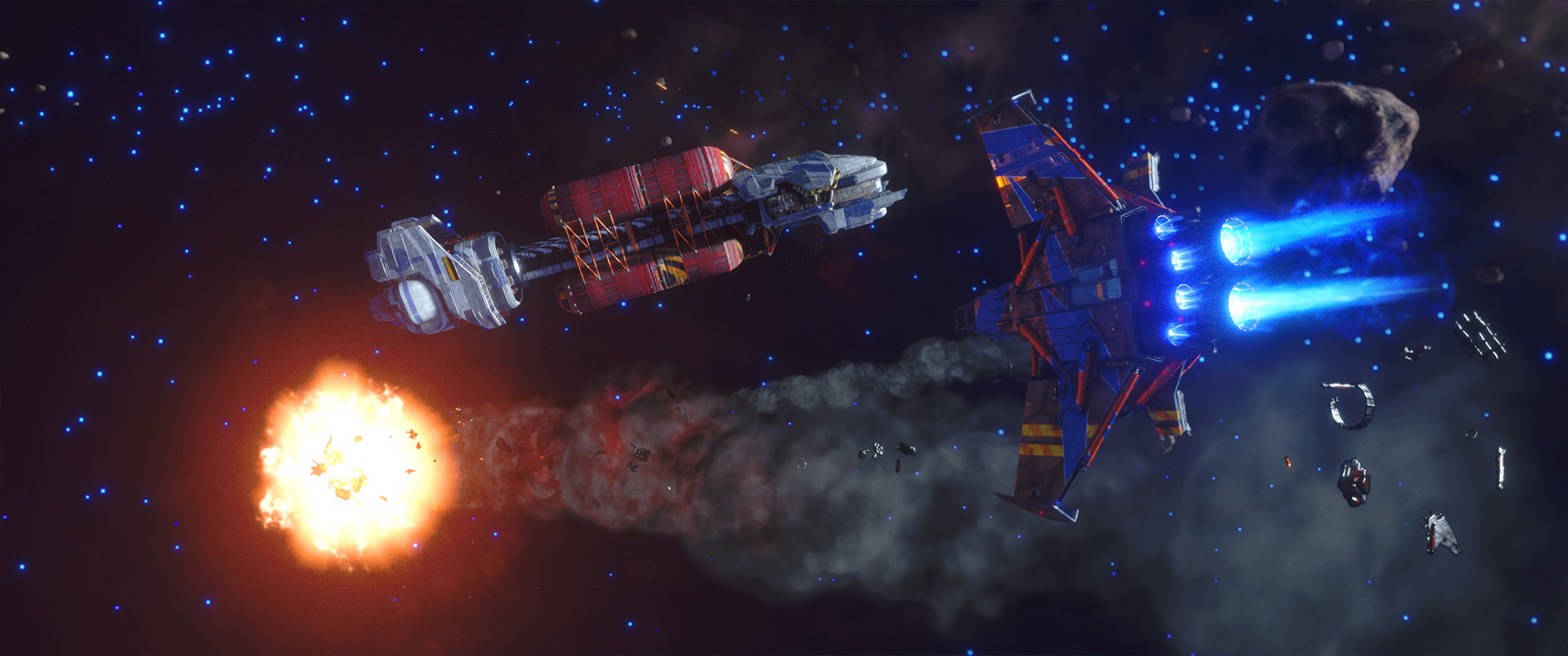
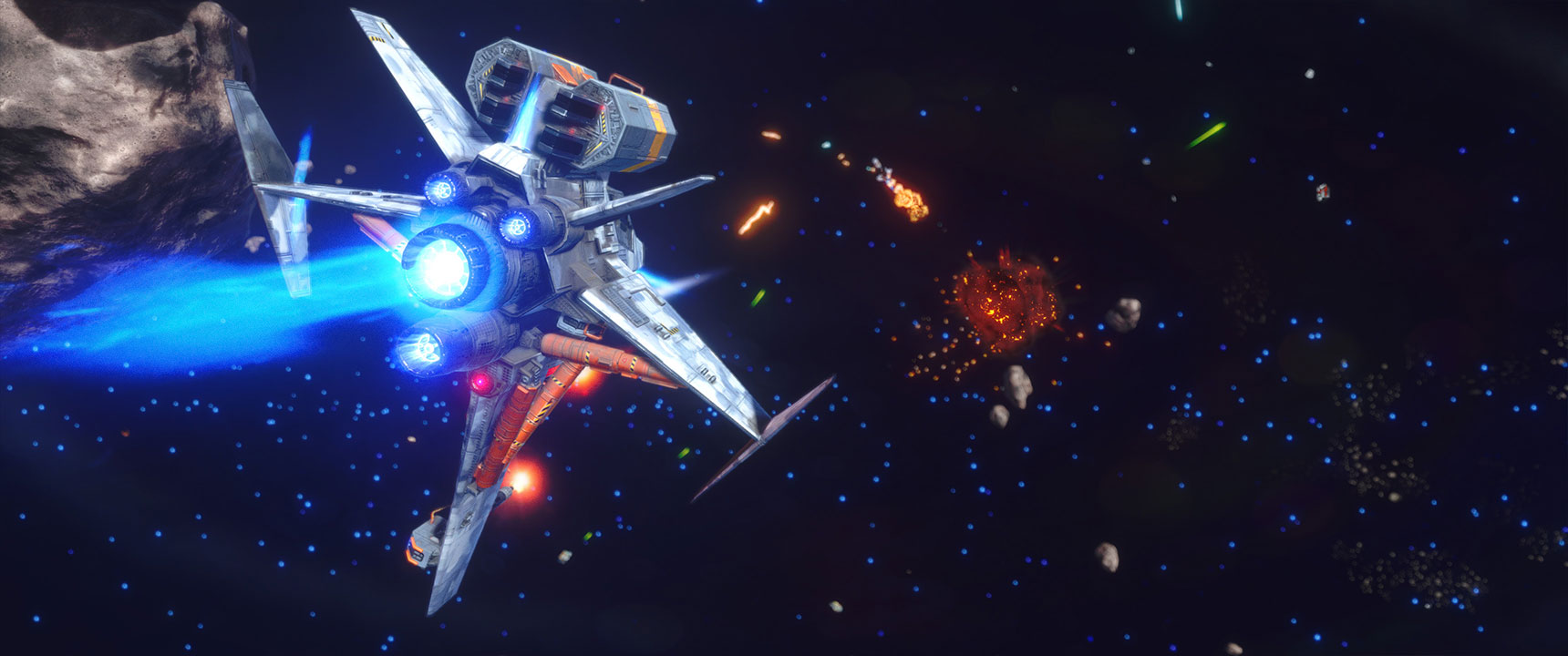
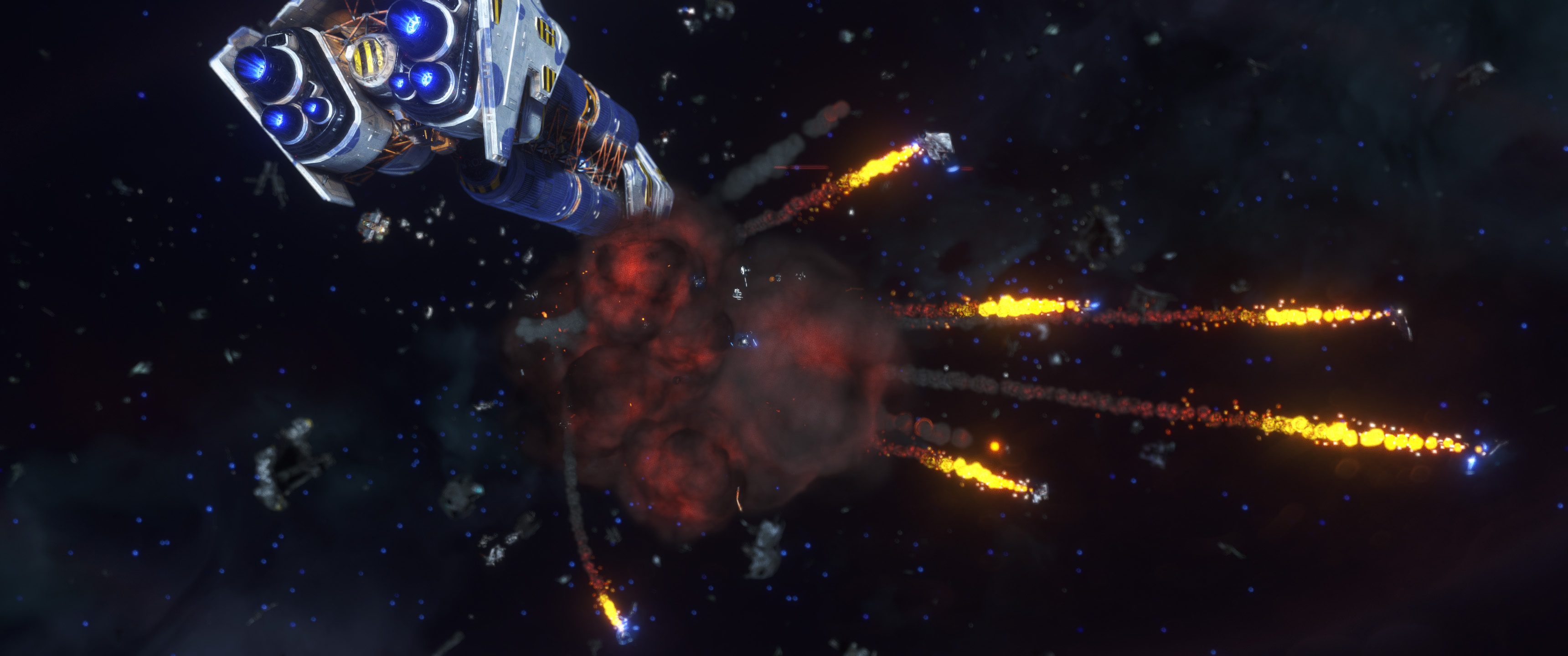
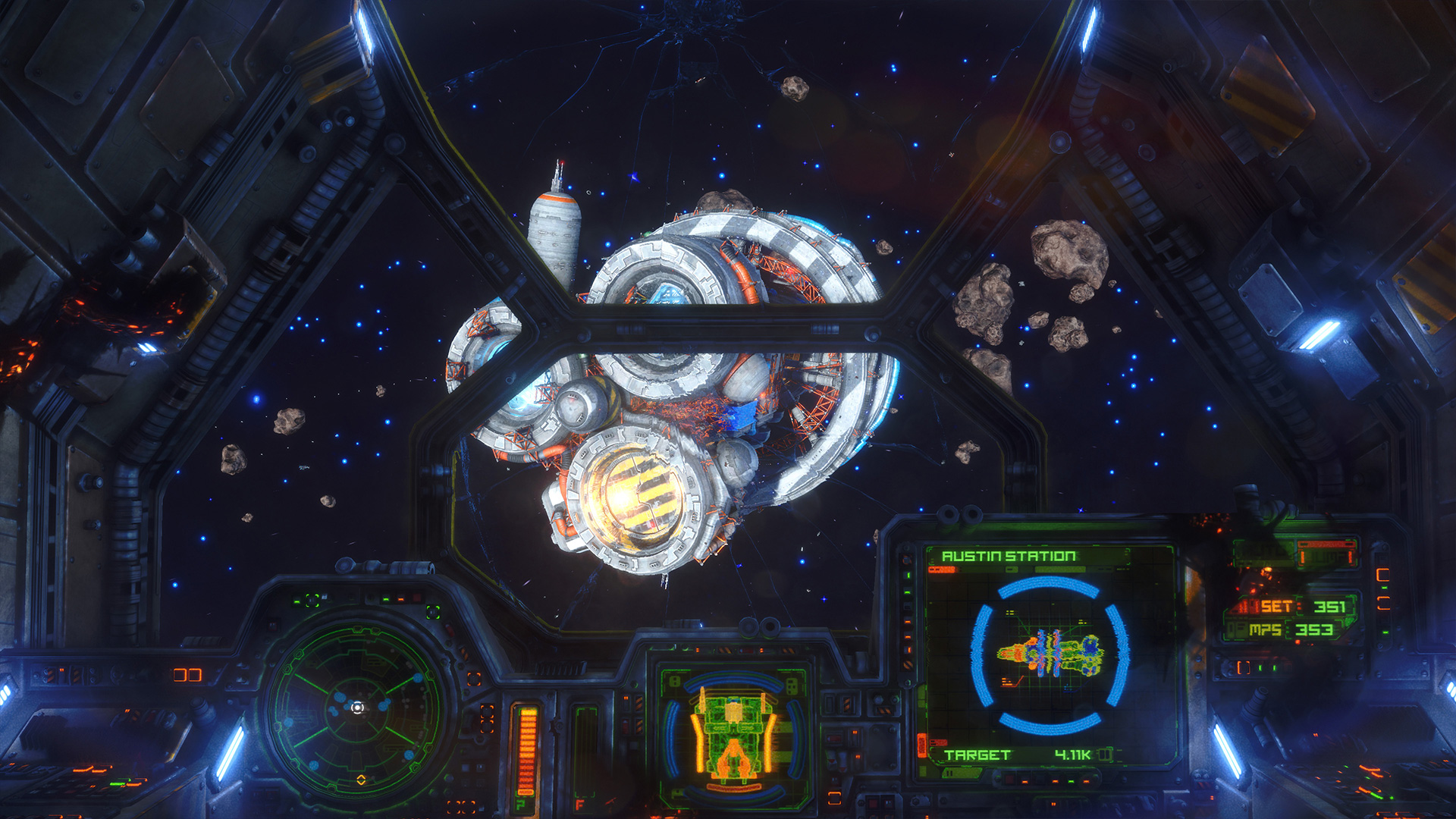
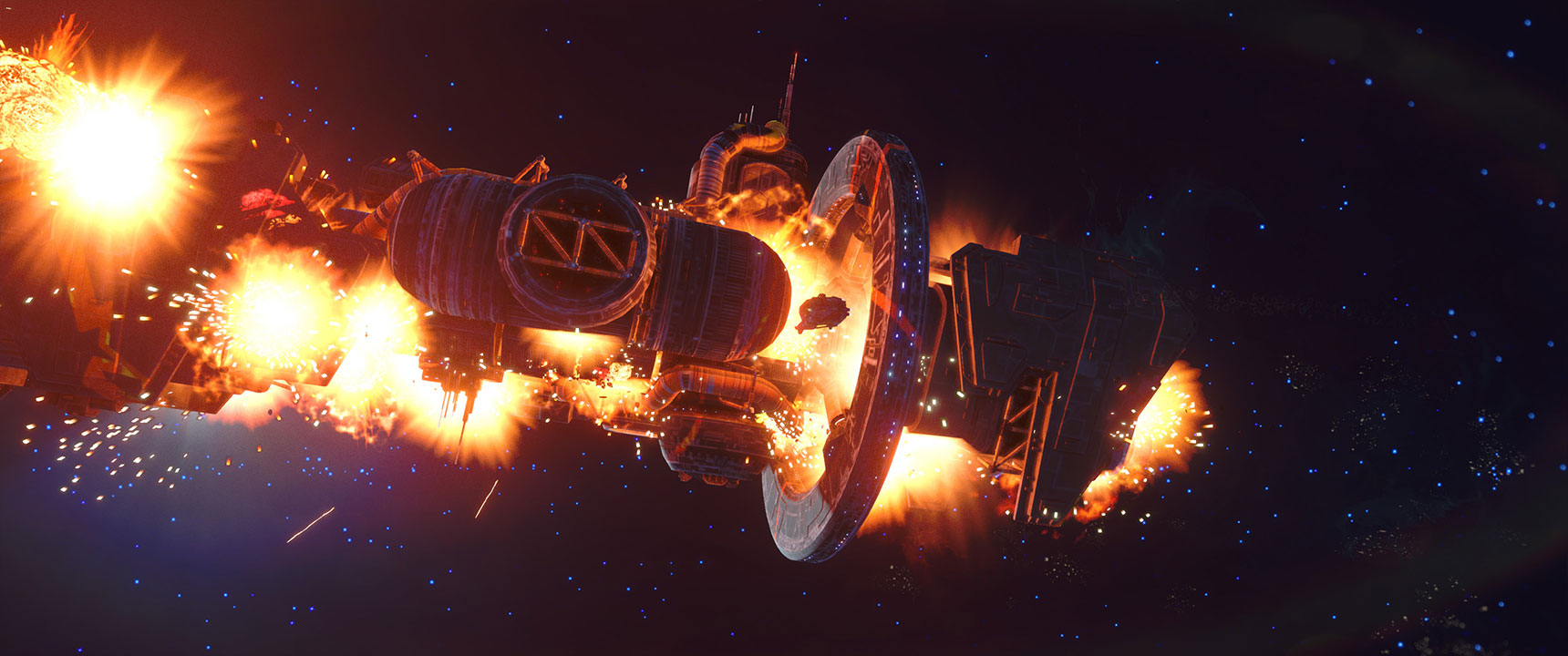





Published: Jul 21, 2019 11:22 pm